Editor’s Note,
When I was a child, a house on the Lawrence Roads, both in Lahore and Amritsar, was considered to be a prestigious address. Later I discovered that there was a road named after Sir Henry Lawrence in Delhi, too. And then when I grew up, some of my friends joined Lawrence School, Sanawar (Shimla Hills) At the NDA, I met my life-long friend Joseph Thomas, who had attended the Lovedale branch of this chain of schools. And he told me a lot about the illustrious founder of these schools which are embedded in military traditions. Thomas has produced this piece as a homage to Sir Henry Lawrence (1806-57). As a sequel to this article, we shall carry a piece on the three schools which bear his name. Much of the work done by this noble soldier-scholar was in the undivided Punjab. Hence, you may like to know more about the Punjab as it was during the time of Maharaja Ranjit Singh. For that, we have given you a link to a piece entitled, “In Search of my Mother Tongue” at the end of this article.
*
“Few Englishmen of that time understood the Sikhs as well as Sir Henry Lawrence. His admiration of the Sikhs enabled him to handle with tact the Darbar politics when, after the treaty of Bhairoval, he wielded unlimited power as Resident at Lahore. Sympathy and moderation marked his treatment of the Sikhs and he throughout resisted Lord Hardinge`s more stringent policy. His civil administration was run by a council of eight leading sardars, six of them Sikhs, one Hindu and one Muhammadan, each with specific portfolios. In pursuing a moderate policy towards the Sikhs and the Punjab, Lawrence had to wage a private war with the Governor General, Lord Dalhousie. At heart, he was opposed to the annexation of the Sikh kingdom. In his communication to the Home Government and to friends in England, he described the annexation of the Punjab as immoral, unjust and impolitic.” — http://www.thesikhencyclopedia.com
Portrait in 1828, aged 22
“Take him all in all, his moral as well as his intellectual qualities, no Englishman who has been in India has ever influenced other men so much for good; nobody has ever done so much towards bridging over the gulf which separates race from race, colour from colour, and creed from creed; nobody has ever been so beloved, nobody has ever deserved to be so beloved, as Sir Henry Lawrence.” — Bosworth Smith
On 22nd July 1857, the Directors of the East India Company unanimously passed a resolution “proposing to appoint Colonel Sir Henry Lawrence, KCB, provisionally to succeed to the office of Governor-General upon the death, resignation, or coming away of Viscount Canning, pending the arrival of a successor from England.” In those days the telegraph line had not yet been laid between India and England. What the Directors did not know then was that 18 days earlier, Sir Henry had been killed by an artillery shell. He was buried in a pit with five other soldiers. Later, as per his wishes, a simple gravestone was erected.
Apart from thi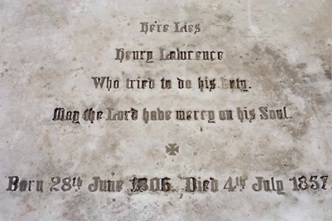 s simple gravestone, there are many living memorials to Henry Lawrence scattered all over India. The most familiar are the Lawrence Schools at Sanawar and Lovedale. He is especially remembered in Punjab and the North West Frontier Province (NWFP, now called Khyber Pakhtunkhwa). He was instrumental in ensuring that direct British rule was NOT extended to Kashmir after the Second Sikh War. An island in the Andaman group is named after him. So is a town in New Zealand. The Lawrence Road in Delhi is named for his brother, John.
s simple gravestone, there are many living memorials to Henry Lawrence scattered all over India. The most familiar are the Lawrence Schools at Sanawar and Lovedale. He is especially remembered in Punjab and the North West Frontier Province (NWFP, now called Khyber Pakhtunkhwa). He was instrumental in ensuring that direct British rule was NOT extended to Kashmir after the Second Sikh War. An island in the Andaman group is named after him. So is a town in New Zealand. The Lawrence Road in Delhi is named for his brother, John.
Henry Lawre nce Island is the second largest island of the Ritchie’s Archipelago in the Andaman Islands. It has an area of 55 km².
nce Island is the second largest island of the Ritchie’s Archipelago in the Andaman Islands. It has an area of 55 km².
Ross Place (State Highway 89), the main street of Lawrence in New Zealand
Between and after the Sikh wars, Henry Lawrence was the virtual ruler of Punjab. He was succeeded by his younger brother John, who later became the Viceroy. Between the two Lawrences, they established Punjab on such a sound footing that, within a decade of being enemies, the Sikhs became the allies of the British.
Maps of Punjab
Sir Henry’s character bound all who knew him intimately to lasting affection for him. He had more fresh and sound ideas about India than any of his contemporaries. In 1854 he wrote, “assuredly the revenues of India ought to be spent on India……….. I am, however, in a terrible minority. The Army, the Civil Service, the Press, and the Governor-General are all against me. But I still say, “Read our treaties.” We have no right to make one day and break the next: to put our own interpretation this year on what was acknowledged to bear a different one last year.” Is it any wonder then that multitudes of Indians, aristocrats and villagers alike, trusted him and followed him ? His place in Indian history is thus not with the pro-consuls like Wellesley and Dalhousie but as a successor to the great Indian rulers such as Sher Shah and Ranjit Singh.
Henry’s father, Alexander, joined the Navy at the age of 14 and served in the war against America. At 16 he left the Navy, joined the Army and sailed to Madras. He then served in South India and Sri Lanka for 25 years without a break. He fought in the battles at Kannur in 1790, Kochi in 1795, Colombo in 1796 and Srirangapatnam in 1799, where he was wounded. He married in 1798 and Henry was the fifth of twelve children.
The brothers George, Henry and John Lawrence served in India with distinction. A nephew, also named George, and Henry’s brother-in-law, Captain James Marshall, also served in India. The latter was killed in the First Afghan War. An incident in this war illustrates the moral force that the Lawrences exerted in India. George became a prisoner of the Afghans and did much to preserve the spirit of his fellow prisoners. His captors so trusted him that they sent him on a mission to General Pollock, head of the opposing force, to offer terms. George duly went back to his captors to tell them that Pollock had refused their conditions.
The fabled Khyber Pass
Once more, during the Second Sikh War, just after the battle of Gujrat in 1849, George Lawrence accepted a mission to ask conditions for his Sikh captors. When these were refused, he returned across the Jhelum to his captors, even though they had been defeated in the interregnum. The Sikhs were surprised and cheered George long and loudly.
The boy Henry was not in any way distinguished except by notable quietness, reserve and kindliness. At the age of 9 he became a boarder at Foyle’s College, Londonderry where his maternal uncle, the Revd James Knox, was principal. A characteristic incident shows Henry’s aloofness from the others, the shy awkwardness which long continued to mark him, and devotion to truth. The boys had been breaking windows with stones, Henry abstaining. At last they made him aim at another mark, shrewdly calculating that his lack of skill would make him hit an adjacent window. Without a remark, he left the playground, knocked at the awful library door, and presenting himself before the principal, said, “I have come to say, Sir, that I have broken a window.”
A plaque in Foyle’s College
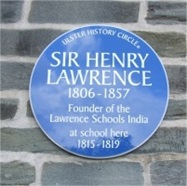 In 1820, Henry, aged 14, entered the East India Company’s Military College at Addiscombe. Due to a shortage of officers in India, the first few in each term were given double promotions. Henry got two such double promotions, graduated in 1822 and set off to India in September. He first served at Dum Dum in the 2nd Battalion of Foot Artillery, the Bengal Army.
In 1820, Henry, aged 14, entered the East India Company’s Military College at Addiscombe. Due to a shortage of officers in India, the first few in each term were given double promotions. Henry got two such double promotions, graduated in 1822 and set off to India in September. He first served at Dum Dum in the 2nd Battalion of Foot Artillery, the Bengal Army.
In 1824, Henry went on his first campaign, that against Burma. Thirty years later he recounted, “We were six months preparing to move a force of 10,000 men, most of our cattle [for transport] having been procured from the banks of the Narbada in Central India, at least 1000 miles from Chittagong.” This was only the start of their troubles. Difficult terrain, a trying climate and diseases like malaria and dysentery took their toll. Later, in 1855 he wrote, “As a boy, during the first Burma war, having seen 10,000 men reduced to 800 effectives, I can understand the cause of much that has occurred in the Crimea.”
In Burma, Henry proved himself worthy of his father. But not even his iron strength could resist the onset of Arakan fever — malaria — and he was sent back to Kolkata to recoup. In those days there was no cure for malaria and Henry suffered from this illness for the rest of his life. In 1826 he was sent back to England on sick leave. His mother noted in her diary — “Returned from Arakan, after the Burmese war, my dearest beloved Henry Montgomery, not twenty-one years old, but reduced by sickness and suffering to more than double that age.”
It was part of Henry Lawrence’s greatness to serve another 26 years in the heat of India and to accomplish much in spite of suffering from malaria. In 1830 he came back to India, never to return to England, except for eight months sick leave in 1848.
In 1832, Henry qualified as an interpreter in Hindi after two years unremitting study. The next year, he joined the Revenue Survey and worked for five years in Moradabad, Gorakhpur, Fatehgarh and Allahabad.
The massive task of surveying India in the nineteenth century
A nineteenth century theodolite
Placed in charge of Firozpur, in the Punjab (1839), he acquired a substantial knowledge of Sikh politics. He also became the British Resident Minister in Nepal from December 1843 to 1845. At the end of the First Anglo-Sikh War, the Treaties executed provided for a garrison to be based in Lahore. Lawrence remained there as Agent to the Governor General in charge of political relations of the British government with the Darbar. By the Treaty of Bhairowal (1846), he was made the Resident at Lahore as well as Agent to the Governor-General for the North West Frontier. While here, he governed the area with the help of officers, known as ‘Henry Lawrence’s Young Men’. They soon began to be called the Paladins of Punjab.
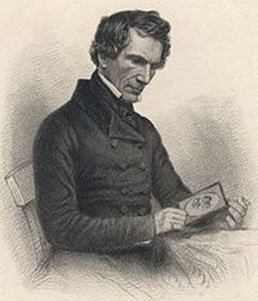 Henry Montgomery Lawrence. Engraving from a photograph
Henry Montgomery Lawrence. Engraving from a photograph
In 1848, wearied by malaria which never left him, he went on sick leave to England. He was soon recalled when the Second Sikh War (1848–49) broke out. He was made president of the board of administration of the newly annexed Punjab. He was in charge of military and political affairs while his younger brother, John, supervised finance. A third member, Mansel, looked after judicial and police affairs.
Henry Lawrence adopted a conciliatory attitude towards the Sikh soldiers. He introduced a system of regular payments against the old practice of keeping the troops in arrears for months. He was convinced of the qualities of the Sikh soldiers and recommended their wholesale enlistment in the British army. He reduced tensions in the frontier districts by pacification and settlement of the Sindh Sagar Doab, Bannu, Hazara, Peshawar and the entire trans Indus region.
A letter written on 30 August 1852 by Sir Henry to his old friend Kaye, provides a summary of what he and his paladins achieved in the period 1849-52. The letter says :
“The country was divided into four Commissionerships, and each of the latter into 4 or 5 Districts. The Districts of Peshawar and Hazara were, until this year, kept directly under the Board. Colonel Mackeson is now the Commissioner over them. The Depty. Commissioners over Districts perform all the functions of magistrates and 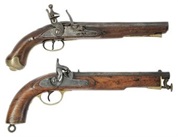 collectors in the Provinces, with some of the duties of a judge. Each district has one or two assistants, according to size and importance, as also an uncovenanted, called extra, assistant. All these officers work in all the courts, civil, fiscal and police. Natives are eligible to these last named appointments, and it has been our aim to get as many natives of the Panjab into these offices, and also into berths of tahsildar, etc, but as yet it has been uphill work, as the Panjabis are not acquainted with forms and rules which are unfortunately thought too much of, though happily not so much so as in the Provinces. We wish to make the basis of our rule a light and agreeable assessment; a strong and vigorous though uninterfering police, and a quick hearing in all civil and other cases. We are therefore pushing on the Revenue Survey (you know I was for several years a revenue surveyor), and a revised Settlement.
collectors in the Provinces, with some of the duties of a judge. Each district has one or two assistants, according to size and importance, as also an uncovenanted, called extra, assistant. All these officers work in all the courts, civil, fiscal and police. Natives are eligible to these last named appointments, and it has been our aim to get as many natives of the Panjab into these offices, and also into berths of tahsildar, etc, but as yet it has been uphill work, as the Panjabis are not acquainted with forms and rules which are unfortunately thought too much of, though happily not so much so as in the Provinces. We wish to make the basis of our rule a light and agreeable assessment; a strong and vigorous though uninterfering police, and a quick hearing in all civil and other cases. We are therefore pushing on the Revenue Survey (you know I was for several years a revenue surveyor), and a revised Settlement. 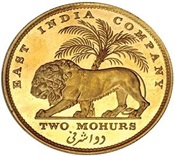 We have hunted down all the dacoits. During the last year we hanged nearly a hundred, six and eight at a time, and thereby struck such a terror that dacoity is more rare than in any part of India. In civil justice we have not been so successful, or in putting down petty crime; but we are striving hard to simplify matters and bring justice home to the poor. In seven years we shall have a splendid canal with four great branches from the hills close down to Multan, and in two years we shall have a magnificent trunk road to Peshawar, and in every direction we are making cross roads (in the Lahore District there are eight hundred miles of new road), and in many quarters small inundation canals have been opened out or old ones repaired. Col. Napier our civil engineer is a great man in this department.
We have hunted down all the dacoits. During the last year we hanged nearly a hundred, six and eight at a time, and thereby struck such a terror that dacoity is more rare than in any part of India. In civil justice we have not been so successful, or in putting down petty crime; but we are striving hard to simplify matters and bring justice home to the poor. In seven years we shall have a splendid canal with four great branches from the hills close down to Multan, and in two years we shall have a magnificent trunk road to Peshawar, and in every direction we are making cross roads (in the Lahore District there are eight hundred miles of new road), and in many quarters small inundation canals have been opened out or old ones repaired. Col. Napier our civil engineer is a great man in this department.
“The defence of the frontier alone has been no small work, considering we have done it in spite of Sir Chas. Napier. We have raised five regiments of as fine cavalry as any in India, and as many corps of splendid infantry; also six regiments of very good military police, & 2,700 cavalry police in separate troops. These irregulars and military police have kept the peace of the country; the regulars being in reserve. There are, besides these, the ordinary thanah  police, employed as detectives, and on ordinary occasions they may amount to 6000 men. Not one shot has been fired within the Panjab since annexation. The revenue has been reduced by the summary assessments about three lakhs or about twenty-five per cent on the whole; varying from 5 and 10 to 50 per cent. The poorer classes have reason to be thankful; not so the Sardars, and those who used to get employment under the Darbar; of these, hundreds, perhaps thousands, are out of employ. Liberal life pensions have been granted; but still there is distress in the higher circles, especially where parties were connected with the outbreak. In the Panjab there is not much less than twenty-five lakhs of jaghir, nearly all of which has been enquired into and reported. In this department, we have done more in three years than was done in fifty years in the N.W. Provinces.
police, employed as detectives, and on ordinary occasions they may amount to 6000 men. Not one shot has been fired within the Panjab since annexation. The revenue has been reduced by the summary assessments about three lakhs or about twenty-five per cent on the whole; varying from 5 and 10 to 50 per cent. The poorer classes have reason to be thankful; not so the Sardars, and those who used to get employment under the Darbar; of these, hundreds, perhaps thousands, are out of employ. Liberal life pensions have been granted; but still there is distress in the higher circles, especially where parties were connected with the outbreak. In the Panjab there is not much less than twenty-five lakhs of jaghir, nearly all of which has been enquired into and reported. In this department, we have done more in three years than was done in fifty years in the N.W. Provinces.
“Perhaps I expedited matters by prohibiting in the Cis and Trans Sutlej in 1846 any resumption until the case was reported and orders issued. This was reversing what some of our officers wished, viz. first to resume, and then to enquire, perhaps in ten or twenty years afterwards !
“We have planted thousands of trees, so that in a few years, the reproach of want of verdure will be wiped off. Serais are at every stage on new main roads, and police posts at every two or three miles. We are enquiring as to education and have got up a good English and vernacular school at Amritsar, where 160 boys and men attend; many of whom already speak and write English. I am very anxious to extend vernacular education and educate Panjabis for the public service, and for engineering and medical and surgical offices.”
In five short years Henry Lawrence reconstructed Punjab. He shares the credit with Maharaja Ranjit Singh for creating modern Punjab. Thanks to him and his paladins, the Sikhs were converted from enemies to allies.
By 1853 policy conflicts with his brother led to a transfer to Rajputana. He bid farewell to his younger brother John by saying, “If you preserve the peace of the country and make the people high and low happy, I shall have no regrets that I vacated the field for you.”
In March 1857 he became Chief Commissioner in Oudh and was killed in the fighting that ensued. On the 2nd of July, as he lay exhausted by the day’s work and the terrific heat in an exposed room, a shell struck him, and in forty-eight hours he was no more. A baronetcy was conferred on his son. A marble statue was placed in St Paul’s as the national memorial of one who has been declared to be the noblest man that has lived and died for the good of India.
Photo of Henry Lawrence in 1857. The effect of 33 years of malaria is apparent.
Sir Henry’s four surviving brothers all attained high positions in Indian civil and military service. Major-General Alexander W. Lawrence (born 1803, died 1868); Lieutenant-General Sir George St. Patrick Lawrence (born 1804); Sir John L. M. Lawrence (born 1811), created Lord Lawrence in 1869, Viceroy of India 1863-’68; and Major-General Richard C. Lawrence (born 1817).
Statue of Henry Lawrence at Lovedale, Nilgiris
Sir Henry Lawrence came up the hard way. He took part in the Arakan campaign; toiled at survey in the rural areas of Uttar Pradesh; gave a hand to drag guns up the Khyber Pass in 1842; developed Punjab in the years between and after the Sikh Wars; spoke and acted simply in religion. His qualities were really plain; his distinction lay in a clear perception that the world is to be saved, or guided, by simple and normal qualities used in heroic fashion. Since he had no pedestal, clung to simple duties performed with austere directness, he did not, except in the spectacular close of his career, catch the eye of the undiscerning mass of the British public. But,where he lived and worked, he is still remembered as a living person.
The Khyber Pass today
For more information on Punjab and the Punjabi language, please click on the following link:
http://amolak.in/web/in-search-of-my-mother-tongue/

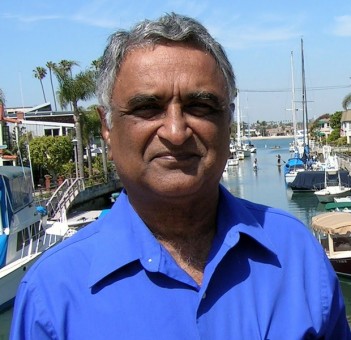
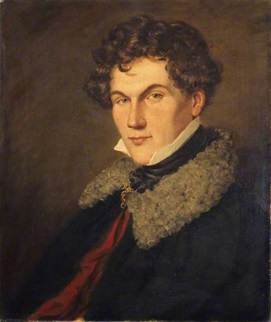
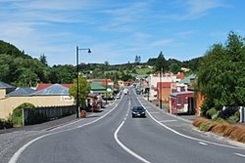
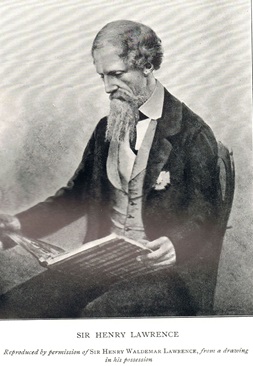

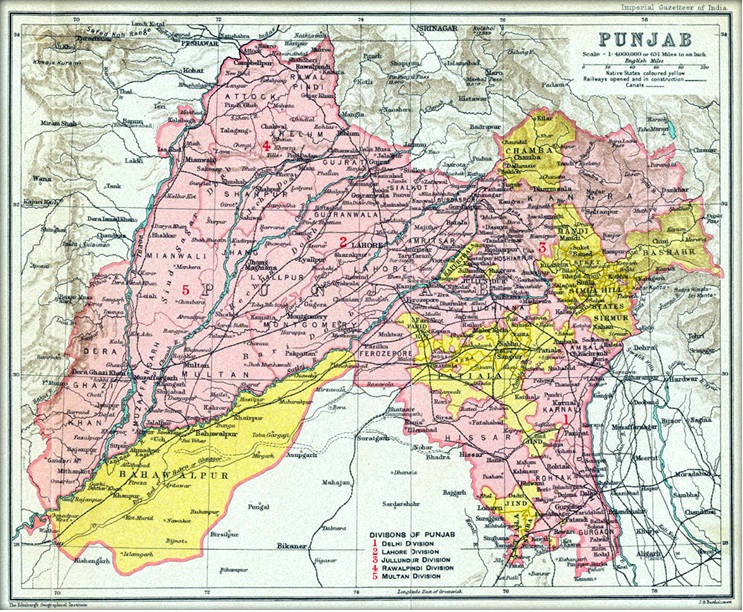
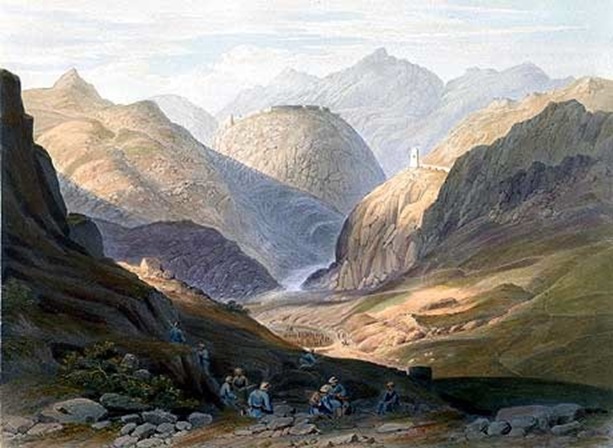
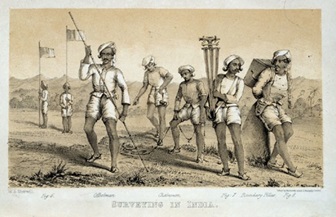
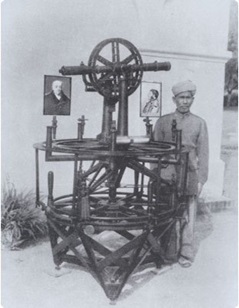
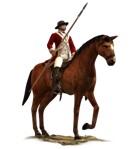
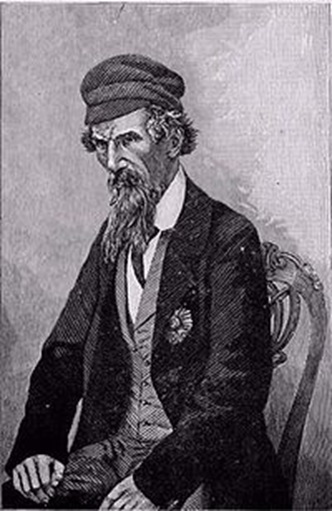
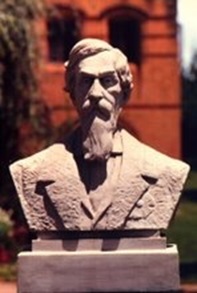
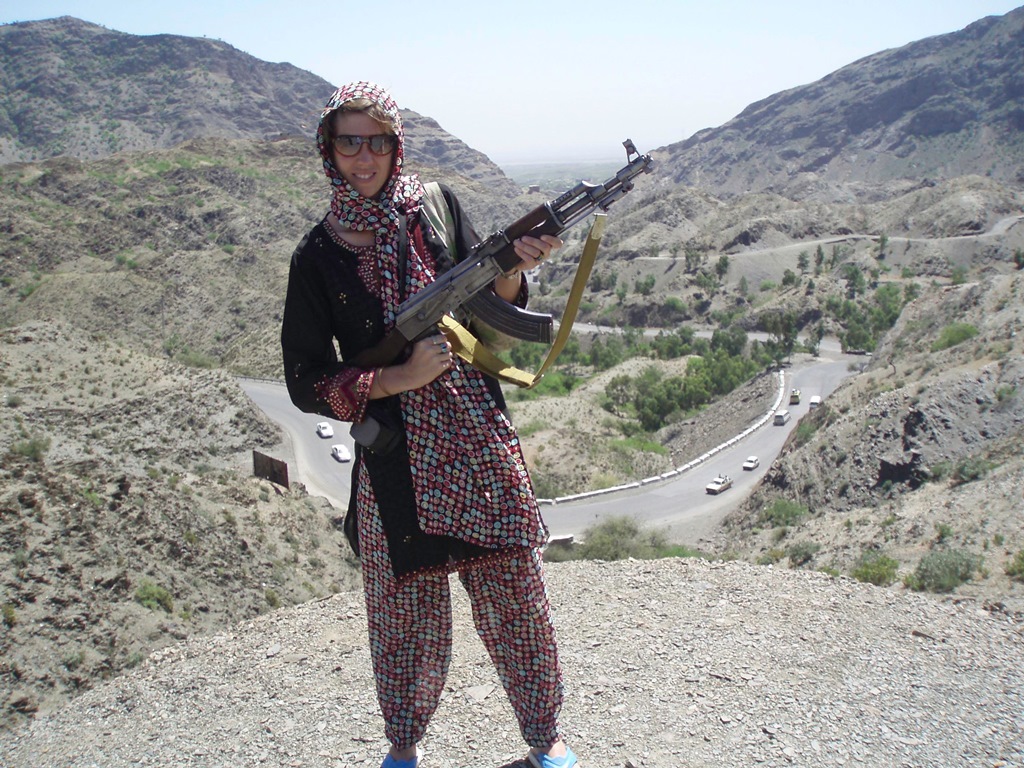





Just too good.
Lovely article thanks
Dear Sir,
1.A well researched paper.It evidences your thrust for research and passion for knowledge.
2.A treasure for posterity.
Regards,
Thank you sir.
I reiterate once again, that this is such a good read… So informative and rich in history. I thoroughly enjoyed reading this and soaking in all the informative bits. The article is even more special as both my kids are Sanawarians… Mayank passed out in 2011 and Shefali is in the 11th. I have shared this with the children as well as their friends, including Old Sanawarians.
Thanks. You can read more about the early history of Sanawar at http://tinyurl.com/mgh2uy2
After Thomas agreed to write on Sir Henry Lawrence, I started reading that portion of the history of the Punjab. There are differing opinions on the causes of the decline and fall of the Empire of Maharaja Ranjit Singh. But there is complete unanimity on the role of Sir Henry Lawrence. He ruled over the hearts of the people of the Land of the Five Rivers, and left an indelible mark on the sands of time. He laid the foundation stone of the Empire, and all through the Victorian period, there was peace and tranquillity.
And then came two gentlemen whose names were so similar that many people think it was the same man! Michael O’Dwyer was the Lt Governor, and we shall never know what verbal instructions he gave to Brig Gen Reginald Dyer, but we know for sure that the Brig Gen chose to personally ‘attack’ a group of civilians with a platoon strength of soldiers! It seems he had no faith in the officers and VCOs under him. To ‘disperse’ an assembly of freedom fighters, he ordered his men to ‘shoot to kill’ And what he said the next day to the representatives of the citizens did more damage than the bullets. He said,
“You people know well that I am a Sepoy and soldier. Do you want war or peace? If you wish for a war, the Government is prepared for it, and if you want peace, then obey my orders and open all your shops; else I will shoot. For me the battlefield of France or Amritsar is the same. I am a military man and I will go straight. Neither shall I move to the right nor to the left. Speak up, if you want war? In case there is to be peace, my order is to open all shops at once. You people talk against the Government and persons educated in Germany and Bengal talk sedition. I shall report all these. Obey my orders. I do not wish to have anything else. I have served in the military for over 30 years. I understand the Indian Sepoy and Sikh people very well. You will have to obey my orders and observe peace. Otherwise the shops will be opened by force and Rifles. You will have to report to me of the Badmash. I will shoot them. Obey my orders and open shops. Speak up if you want war? You have committed a bad act in killing the English. The revenge will be taken upon you and upon your children.”
Sir Henry Lawrence and his paladins took nearly a decade to build the cornerstone of the edifice. ‘Brig Gen Dyer took barely ten minutes to demolish it!
I am reminded of something which Abe Lincoln said, and I quote,
“Nearly all men can stand adversity, but if you want to test a man’s character, give him power.”
I think every military officer must read this piece of history. Ever so often, soldiers create permanent enemies, for short term visible effects.
Surjit
Surjit,
Rome was just a city state. But their domain grew and grew till it became a mighty empire covering the entire Mediterranean littoral and much of Europe. How did they do it ? It was by alliances with local power groups and by co-opting defeated states into the Roman empire. “Roman citizenship” was a coveted status and was conferred on opinion makers loyal to Rome. The Roman empire was more of a commonwealth than an empire. To this day, every country that was part of the Roman empire is proud of the connection. They don’t consider themselves to have been conquered or subjugated by Rome.
England was just a small country — only a part island. But their domain grew, just as Rome did. They did not consciously set out to create an empire. It just happened by a series of accidents. But, once their domain reached a substantial size, they looked to the Roman empire for inspiration. So it was alliances all the way. Henry Lawrence was a strong votary of alliances rather than conquest. After the first Anglo-Sikh war there was a strong British lobby who wanted to annex Kashmir. He resisted that and managed to leave Kashmir as a protectorate.
Henry Lawrence was virtual ruler of Punjab and NWFP after the first Anglo-Sikh war. His title was modest – “Agent to the Governor General for the North West Frontier and Resident in Lahore.” He delegated power to talented young officers, most of them in their 20s. They soon became known as the paladins of Punjab. Names such as James Abbott, John Nicholson, Neville Bowles Chamberlain, Henry Daly, Herbert Edwardes, William Hodson, George Lawrence , Harry ‘Joe’ Lumsden, Frederick Mackeson and Reynell Taylor are well known. The survivors among them rose to high rank. They founded two cities (Abbottabad & Edwardesganj), two famous regiments (The Guides and Hodson’s Horse) and a famous public school (Daly College, Indore).
The story of Henry Lawrence will be complete only if we include another article on the Paladins of Punjab.
Dear Surjit,
I am delighted to learn that you propose to write about the Lawrence Schools. By the way, I studied in the one at Sanawar from 1949 to 1955 when I completed my Senior Cambridge. All our three children did their entire schooling there. All of our eldest daughter Beeba’s three children too were there.
You have mentioned Lawrence College at Ghoragali near Murree, Pakistan. Two of my elder brothers studied there in the late thirtees. They were the only two Indians in the school then. Both the brothers are no more – one was killed in the Second World War in Malaya in 1944 (he was a gunner), and the other passed away in Dharamsala about a decade ago. I also have an old photograph of the brother who joined the army with some other students of the Ghoragali school. It was given to me while in school by my housemaster, Mr. T.C.Kemp (later Deputy Headmaster), who is also in that photograph.
Incidentally, some years ago a group of students from Sanawar visited Ghoragali. Beeba’s daughter, Meher, was amongst them.
Regards,
Harindar
Harindar ji,
I think no one else whom I know has been associated with Lawrence Schools than you. I can now make out the source of your ability to persevere and press on regardless…after all, Sir Henry Lawrence gave you the motto, “NEVER GIVE IN”
I think you must record your memoirs, with the help of your children and grand children and send them for our blog. And, indeed, they must be embellished with pictures.
Ghoragali visit must have been an event to remember. Do tell us about that school too.
Regards,
Surjit (and Thomas)
Very well researched article.It was killing fields then. It is killing fields now.
What has changed? Would appreciate research on some native Indians who did our country proud during the British regime.
Viren,
Thanks. A lot has changed in Punjab, NWFP and Sindh. It is now probably the world’s largest irrigated area. Sindh is now green. A major push was the Sukkur Barrage. The British era was always a joint venture. And we now have more Indians in London alone than there were Brits in the whole of India.
Regarding Indians who did our country proud during the British regime: read about Nain Singh at http://amolak.in/web/nain-singh-an-intrepid-explorer/
Viren,
During the rule of Henry Lawrence and his paladins not a single shot was fired within Punjab by the Army or Police. They brought in an era of peace which lasted for 70 years.
Great article
Love it so cool.
Thank you for the article on Sir Henry Lawrence. In school we learned very little about his life, other than he was killed in the Indian Mutiny (now the First War of Indian Independence) and that while dying he advised his fellow men to “Never Give In” which was the Lawrence family motto.
I have since learned that he was a very good administrator and that he was against the British policy of annexing Indian land under any pretext.
Now your article fills in the details and tells me a lot more abut his administration. He is to be much admired as there are very few persons who are brave enough to voice their opinions against the ruling power.
Enjoyed reading this. Gurcharan Das’s play, Larins Sahib, makes interesting reading. Sir Henry is cast as a person of integrity and attuned to Indian sensibilities.
great job
kudos to all involved
Indepth research and understanding of a great and wonderful human soul. An outstanding example of a humane,magnanimous, human being having his interest in the welfare of the subjugated.
an excellent effort in an in depth research.
manmohan
Wonderful write-up backed by solid research and facts. Very interesting to read. Thank you from all OLA for this work.
Jo..Time well spent in researching and writing this article.
There were many in the Army from Lawrence Sanawar but I never knew About the Lawrence family. Remarkable family. All brothers worked hard for the British Empire.
A historical piece and I am sure you must be sending it to all the institutions.
Dave Sood
Excellent read. Really enjoyed it more so as both my kids are from The Lawrence School, Sanawar.
Excellent. Well done Joseph!
Sir Henry Lawrence sure was a remarkable person.
an excellent effort in an in depth research.
manmohan